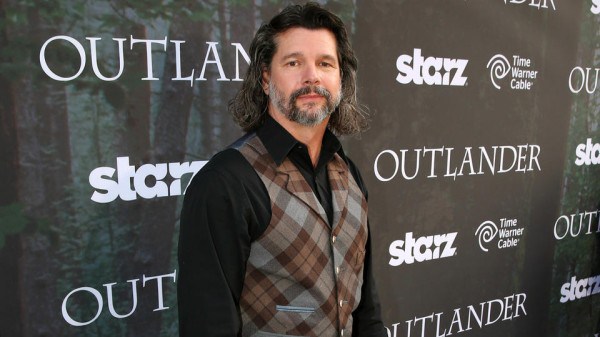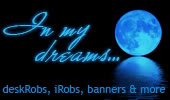Here is Ron D. Moore’s interview with The Hollywood Reporter
From THR
What did you get creatively excited about for the second half of the season?
I really liked where it was going, the fact that it was leaving a lot of story behind. One of the things that I was always attracted to in the series overall is that it’s a traveling story — it keeps moving. It doesn’t stay at Castle Leoch. When we were first premiering, and she arrives at the castle at the end of Episode One, I know a big chunk of the audience thinks, “Oh, that’s the home. She’s going to be in that castle, and it’s going to be the story of her and all those people.” And I like the fact that no, it’s not that. It’s just going to keep traveling and going. The second half of the season just keeps moving, and by the end, we’re leaving Scotland behind. We’re going to France. It makes the production incredibly complicated because you don’t have those home base standing sets that you’re always going to back, so you are like reinventing the show at every block. Like, “OK — this block has a completely different set of problems than the last one did.” So it’s a huge logistical problem, but creatively, it’s great. You’re constantly bringing in new characters, leaving old ones behind, starting new stories. There’s a sense of progress, which is really nice.
Read more of the interview after the jump
The audience has been warned that it gets darker in the back half, but it also gets more romantic, which makes the darkness work even better. How do you tread that fine line?
You’re aided a lot because you know where you’re going. So because I knew that where we’re going to go, that the end was pretty dark, that the last couple chapters of season one’s story we’re going to go to really dark and disturbing places, then you can step back and look at it and say, “OK, the journey of getting there, you don’t want to just be a slide straight down.” You want to have other peaks and valleys. You want other things playing along the way, so that when you got there, it felt like a shock, and it felt like, “Oh my God!” As opposed to, “Oh, Jesus, I’ve been dreading this all season.” You want it to have [a sense] of warning the audience and kind of giving a heads up, that it’s not all sunny-ness and light here. There are some things that are going to happen you’re not going to like, but we have these other stories and so sort of go along with us on the ride.
Do you think that when you reach some of the darker corners, the audience will find themselves tested by them because they’re very enraptured by the romance element?
It’s hard to say. The last couple episodes are tough and challenging [and] you’re really invested in who they are and when these horrific events happen, I think you are challenged by it. In editing and talking to the director, I always want to figure out where the line was: Where’s the point where I can’t watch anymore? What’s the point where I feel like you’re just screwing with me, and you’re just being gratuitous and putting this in my face because you can? And where is the place where you’re shying away from it, and you’re afraid of it? I’m trying to navigate between those two poles was the challenge of it. You wanted it to be truthful to what this was and to not look away, but not to just like shove the audience’s face in it, if that makes any sense. And I think we have accomplished that, but you won’t know until you show it to people.
How has this show changed you as a storyteller, a producer and writer?
It’s been a different set of muscles. As a producer, the fact that there’s no standing sets. I knew going in, well, that will be a challenge. I didn’t realize how big a challenge that was, so that’s been a big learning curve. This is a very complicated production to do this as an ongoing basis, so I’ve learned a lot about that. As a writer, it’s really exercising a different set of muscles to do an adaptation, as opposed to inventing. There’s definitely frustrations at certain times where you’re sitting in the room, and you’re having trouble breaking a story or a scene. And you’re struggling with it. If I was doing Battlestar, there’s a point you go, “Well, clearly something isn’t working, so let’s just throw this away and do something else.” And you don’t have that luxury. Suddenly, you don’t have what used to be a pretty key tool in the box, which was just throw it out and do something else. So now, you’ve got to figure out how to make this work. That’s been frustrating, but what’s been fun about doing it is having a sense of confidence in knowing where you’re going. There’s always a bit of fear when you’re doing an original show: “Do I know what the hell the end of this season’s going to be? Is that going to work? And how is this really going to pay off? Am I chewing up too much story too quickly? Am I going to run out?” All those kind of questions — suddenly, I don’t have to worry about any of that. I’ve got a guide. I know that’s where I’m heading.
Read more ‘Outlander’ Director on Midseason Finale: “We All Went Beyond Our Comfort Zones”
Much of the success of this story relies heavily on the chemistry between Sam and Caitriona. What has that experience been like?
It’s been a happy experience. There was a lot of concern because it is baked into the concept that that better work, that you really have to buy this chemistry. So there was a lot of, “Let’s hope this works on camera.” When we put Cait and Sam together for a chemistry test, we were surprised, and it worked. We were just hoping that it was going to hold, and it did. So it’s just one of those aspects that was a pleasant surprise, and I can put it behind me and not have to worry about it again.
You sometimes put your characters and crew through the ringer. Have you ever had momentary twinges when you’re watching them performing something particularly grueling?
All the time. I was always very aware of the fact that Cait was in every scene, every day, for a long time. And a big chunk of the time she was wearing that thin, white dress, out in the middle of the night, on location in Scotland, and it was freezing cold. She was a trooper. All the way through the season, I kept trying to give her breaks when we could and try to make sure she was taken care of, but it was hard. I’ve never done a show [and] people just don’t do a show first-person narrative like this, where you’re telling the story from that character’s point of view so they have to be in every scene. It’s grueling. She worked harder than any of us, and she always had a great attitude, and she was always cracking jokes with the crew. And it was really inspiring to watch her do it. But I was always concerned: I was always worried that I was going to get the call she’s got pneumonia or she’s broken down or she just can’t do it anymore. But she always answered the bell. So whenever any other actor or anybody else complained, I’d always be like, “You have no f—ing right to complain! Shut up! Go look at her!”
This is one of the most sexually honest shows on television. What’s it been like to put that element into your show?
That was really important because it was such a key part of the books. There was a lot of sexual content in it, a lot of graphic description, so I knew that was going to be part and parcel of what we were going to do. I talked early on with everybody saying, “Let’s try to make it authentic. Let’s try to make it real.” Most of the sex on TV, I find boring and uninteresting. It’s usually the same old thing, and it’s the candle and the gossamer fabric loading in front of the lens, and the lady sitting on top, and she’s moaning, and it’s just like, “OK, that again.” And none of feels like this is how people really have sex. Since this was a show primarily about this relationship and sex was a key part of their lives … I wanted to say, “Alright, we’ve all had sex. Let’s like do this like people actually do have sex.” Let’s talk about intimacy. Let’s talk about how they actually go about this. Let’s not just make it about which position we put her in or how we display her. What’s the sexy angle to do on this? Let’s try to make it like sex, like we all experience. A lot of the credit goes to the actors because they committed to that early on, and then the directors. We would have rehearsal time, and we would spend some time and not rush through those scenes and let them experiment and try different things, so that they really felt like they were creating something in the moment.











Reblogged this on Ana Fraser Lallybroch Blog.
Finally there is this man, Ron, the perfect man to become the caretaker of our beloved OUTLANDER. His brilliant wife Terry knew he was the right talent and perhaps the only person who could so lovingly and boldly create the Clare and Jamie universe for us and for Diana. The timing is simply right on for him and for the story. Perfect timing for Ron, Terry, the devoted cast and crew and Scotland herself to blend their magic creative juices into one bubbling steamy and oh so complicated cauldron for us. So, who will say here is no such thing as witchcraft? Not I!
My first experience with this man and I love him and his work. The adaptation could have been an epic fail and it is not, it is a HUGE triumph.
Mr. Moore, I do wish I had the honor to talk to you over the telephone! At age 67, Ms. Gabaldon and you have opened a whole new world to a lady who was just going through the motions of growing old and accepting that I had but a few years of life left. Your series of books and the Starz Presentation have given me a rich new escape from the reality of everyday life. I can never thank you all enough for this brilliant story and the presentation of it also! THANK YOU & MAY GOD RICHLY BLESS YOU AND ALL WHO HAVE BEEN A PART OF THIS PRODUCTION!
I’ve been a book fan since the 1st pg 23 yrs ago. I think you’ve done it right & very truthful. The lives presented feel real to so many & loved for so long. Your talents are much appreciated & this will (all) be a classic to compliment the books that Diana Gabaldon has so beautifully crafted.
The series is great, but why does there have to be illuminati symbols inserted into some of the episodes. I guess it goes along with the rest of the movie & music industry.
Pinned onto Outlander the Series.